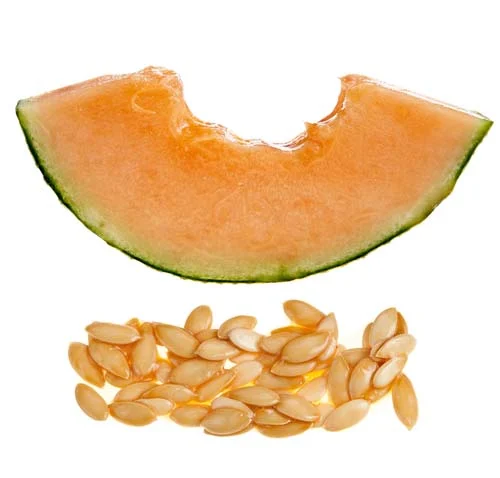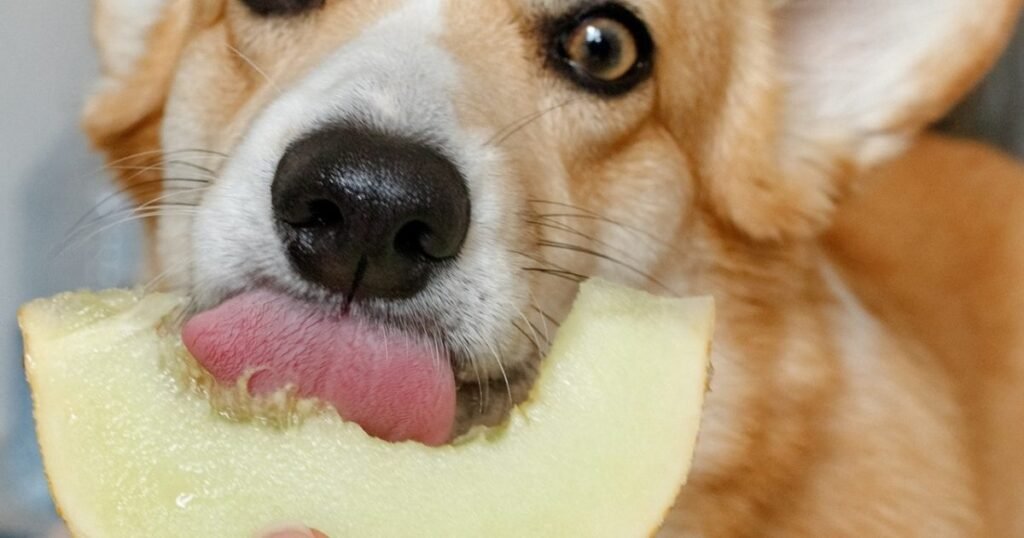Can Dogs Eat Rock Melon? Rock melon, known as cantaloupe in other parts of the world, is a popular fruit in Australia, especially during the warmer months. Its sweet and juicy nature makes it a refreshing treat, but is it safe for our canine companions?
Table of Contents
Can Dogs Eat Rock Melon? The Nutritional Benefits of Rock Melon for Dogs

- Hydration Booster: Rock melon’s high water content is not only perfect for quenching thirst but also for maintaining normal bodily functions. Adequate hydration is crucial for your dog’s kidney function, temperature regulation, and overall health, especially during the scorching Australian summers.
- Vitamin-Rich: The vitamins in rock melon are essential for more than just vision and immunity. Vitamin A is vital for maintaining healthy skin, coat, and muscles. Vitamin C is an antioxidant that can help reduce inflammation and cognitive aging. Potassium is necessary for nerve function, muscle control, and cardiovascular health. The dietary fibre in rock melon aids in regular bowel movements and can help prevent constipation and other digestive issues.
- Low-Calorie Treat: While rock melon is low in calories, it’s also low in fat and cholesterol, making it an ideal treat for dogs on a diet or those needing to maintain a healthy weight. Its natural sweetness provides a satisfying treat without the empty calories found in many commercial dog treats.
Also Read: Can Dogs Eat Eggs? Raw Eggs vs. Cooked Eggs, Which is better?
Additional Insights:
- Antioxidant Properties: Rock melon contains antioxidants like beta-carotene and phytochemicals, which can help protect your dog’s cells from damage.
- Dental Health: Chewing on firm, fresh pieces of rock melon can help scrape away plaque from your dog’s teeth, contributing to better dental health.
- Muscle Recovery: After a long walk or play session, the potassium in rock melon can help your dog’s muscles recover more quickly.
Remember: Always introduce any new food, including rock melon, into your dog’s diet gradually and in small amounts to ensure they don’t have any adverse reactions.
By understanding these benefits and insights, you can make informed decisions about incorporating rock melon into your dog’s diet as a delicious and nutritious treat.
Can Dogs Eat Rock Melon? Potential Risks and How to Mitigate Them

Moderation is Key: Too much rock melon can cause digestive upset in dogs. It’s important to feed this fruit in moderation.
Seeds and Rind: Always remove the seeds and rind to prevent choking hazards and digestive blockages.
Allergies and Sensitivities: Introduce rock melon slowly to your dog’s diet to monitor for any adverse reactions.
Natural Sugars: While not harmful, the natural sugars in rock melon should be considered, especially for dogs with diabetes or those prone to obesity.
Food Safety: Wash the rock melon thoroughly to remove any pesticides or contaminants before serving.
Serving Rock Melon to Your Dog: A Step-by-Step Guide

Here’s an expanded step-by-step guide on serving rock melon to your dog
Step 1: Select the Right Fruit
Choosing a ripe rock melon: Look for a rock melon that is heavy for its size, indicating juiciness. The skin should have a creamy yellow colour, and the fruit should emit a sweet, slightly musky scent. A ripe rock melon will also yield slightly to gentle pressure at the blossom end.
Step 2: Preparation
Washing the fruit: Rinse the rock melon under cool running water to remove any dirt or potential contaminants. Use a clean brush to scrub the surface if necessary.
Step 3: Serving Size
Offering rock melon flesh: Cut the cleaned rock melon into small, bite-sized pieces appropriate for the size of your dog. Avoid large chunks to prevent choking.
Introducing rock melon to your dog: Start with a small piece to see how your dog reacts. Some dogs may be hesitant or allergic, so it’s important to observe your pet for any signs of discomfort or allergic reaction.
Additional Tips
- Frequency: Treat rock melon as a special treat, not a daily diet staple.
- Storage: Store any unused rock melon in the fridge to keep it fresh.
- Monitoring: Always supervise your dog when they’re trying new foods.
By following these detailed steps, you can ensure that your dog enjoys rock melon safely and healthily. Remember, while rock melon is a nutritious treat, it should only be a small part of your dog’s overall diet.
Conclusion
Rock melon can be a safe and nutritious treat for dogs when prepared and served correctly. It’s essential to consider the fruit’s high water and sugar content and to introduce it into your dog’s diet gradually. By following the guidelines above, you can safely share the joy of rock melon with your furry friend.

